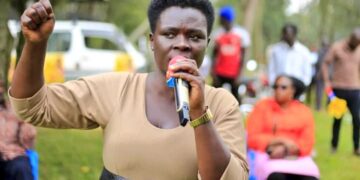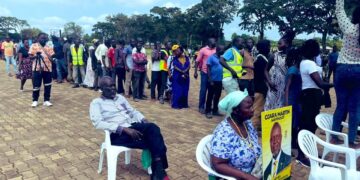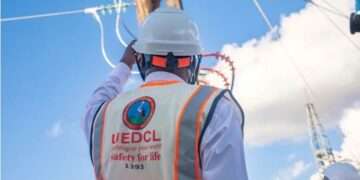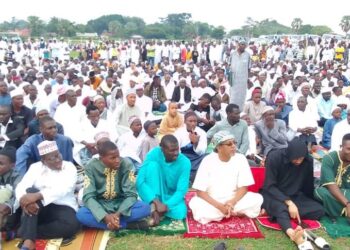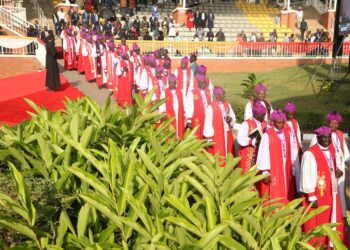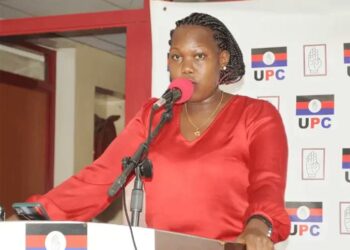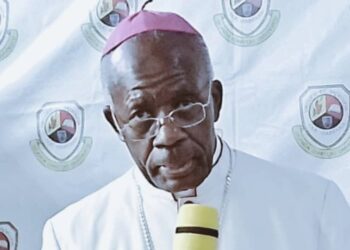By Leonard Kamugisha Akida,
KAMPALA
The National Water and Sewage Corporation (NWSC) has warned against possible cholera outbreaks in case the government constructs boreholes in urban areas as proposed by the ministry of health to dodge high water bills in health facilities.
The warnings follow a proposal by the ministry’s Permanent Secretary, PS Diana Kanzila Atwiine to have boreholes in hospitals situated urban areas especially regional referrals so as to reduce on unpaid water bill, after these arrears rose to Shs14.993Bn as per January 2024, according to NWSC report.
On Tuesday, NWSC Deputy Managing Director- (Technical Services), Johnson Amayo informed Parliament’s Health Committee that as at 31st January 2024, the national and regional referral hospitals owe Shs14.993Bn in unpaid water bills and some of the bills have remained unpaid for over 2years. Ministries, Departments and Agencies of Government have unpaid water bills to a tune of Shs81.4Bn, with national & regional referral hospitals alone owing Shs14.993Bn in unpaid water bills for over 12years.

To reduce on these accumulating arrears, PS Atwiine suggested for construction of boreholes as an alternative to NWSC pipped water.
“In urban areas we were guided that we can’t have boreholes and so you need a special way of treating that water but at least it can serve to clean because if you go to a big hospital, the big chunk of the water is actually for cleaning. So I think there is a way we can have that waiver to dig boreholes, to have water to keep our facilities clean,” Atwine said.
She however noted that the NWSC law does not allow sinking of boreholes in Urban areas decrying water challenges in public health facilities.
“What we also noticed is that under the law of NWSC, they can’t allow to sink boreholes even where there is a possibility that you can get water. Although right now the discussion is on regional referral hospitals, but largely water challenges are real in our facilities. If you go to health centre IIIs and health centre IVs, service delivery is affected because they don’t have water, but to dig boreholes and have the water in our facilities I think is the way to go,” said Atwine.

However, Amayo denied existence of such a policy that bars the construction of boreholes in urban areas, but warned the Ministry of Health that such a move would expose the hospitals to high health risks like cholera outbreaks, and if this happens, they shouldn’t be blamed in case the cholera becomes unmanageable.
“There is no such a policy that we can’t allow boreholes to be dug. Our biggest concern is that a hospital is a health providing facility, boreholes are good in rural areas, if you want to dig boreholes in Kampala which is 15% sewerage and most of the homes have septic tanks, the potential to poison a hospital & turn the hospital into a poison entity by providing water which has no good quality is higher than pursuing a budget which meets the demand,” said Amayo.
“Otherwise, we have no problem, we can give you boreholes, if you want to turn yourselves into an unhealthy institution that is very good for us, but should cholera come, let nobody blame us. Should cholera come, you come to Parliament and explain why cholera is unmanageable,” added Amayo.

Nebbi hospital was cited as one of the hospitals with a long outstanding unpaid water bill, whose debt age stands at 153.9 months over 12 years, which has seen the bill shoot to Shs788.185Mn.
Among the health facilities with high unpaid water bills include; Mulago National Referral Hospital whose bills stands at Shs3.730Bn, Jinja Regional referral hospital-Shs3.656Bn, Mulago Specialized Women hospital-Shs2.101Bn, and Naguru Hospital owes Shs1.480Bn.
















